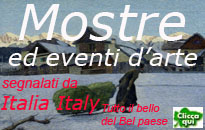Personal liberty is inviolable. No form of detention, inspection or personal search nor any other restriction on personal freedom is admitted, except by a reasoned warrant issued by a judicial authority, and only in the cases and the manner ...
provided for by law.
In exceptional cases of necessity and urgency, strictly defined by the law, law-enforcement authorities may adopt temporary measures that must be communicated to the judicial authorities within forty-eight hours. Should such measures not be confirmed by the judicial authorities within the next forty-eight hours, they are revoked and become null and void.
All acts of physical or moral violence against individuals subject in any way to limitations of freedom shall be punished.
The law establishes the maximum period of preventive detention.
Art. 14
The home is inviolable.
Inspections, searches or seizures may not be carried out except in the cases and in the manner set out by law and in accordance with the guarantees prescribed for the safeguard of personal freedom.
Controls and inspections for reasons of public health and safety or for economic and taxation purposes are regulated by special laws.
Art. 15
The freedom and confidentiality of correspondence and of every other form of communication is inviolable.
Restrictions thereto may be imposed only by a reasoned warrant issued by a judicial authority with the guarantees established by law.
Art. 16
All citizens may travel or sojourn freely in any part of the national territory, except for general limitations which the law establishes for reasons of health and security.
No restrictions may be made for political reasons.
All citizens are free to leave and re-enter the territory of the Republic, provided all legal obligations are fulfilled.
Art. 17
Citizens have the right to assemble peacefully and unarmed.
No previous notice is required for meetings, even when the meetings occur in places that are open to the public.
For meetings in public places, previous notice must be given to the authorities, who may only forbid them for proven reasons of security and public safety.
Art. 18
Citizens have the right to form associations freely, without authorisation, for ends that are not forbidden to individuals by criminal law.
Secret associations and those associations that, even indirectly, pursue political ends by means oforganisations having a military character, are prohibited.
Art. 19
All persons have the right to profess freely their own religious faith in any form, individually or in association, to disseminate it and to worship in private or public, provided that the religious rites are not contrary to public morality.
Art. 20
The ecclesiastical nature and the religious or ritual purposes of an association or institution may not constitute a cause for special limitations under the law, nor for special taxation with respect to its establishment, legal status or any of its activities.
Art. 21
All persons have the right to express freely their ideas by word, in writing and by all other means of communication. The press may not be subjected to authorisation or censorship.
Seizure is permitted only by a reasoned warrant, issued by the judicial authority, in the case of offences for which the law governing the press gives express authorisation, or in the case of violation of its provisions concerning the disclosure of the identity of those holdingresponsibility.
In such cases, when there is absolute urgency and when timely intervention of the judicial authority is not possible, periodical publications may be seized by officers of the judicial police, who must promptly, and in any case within twenty-four hours, report the matter to the judicial authority. If the latter does not confirm the seizure order within the following twenty-four hours, the seizure is understood to be withdrawn and null and void.
The law may establish, by means of provisions of a general nature, that the financial sources of the periodical press be disclosed.
Printed publications, public performances and events contrary to public morality are forbidden. The law establishes appropriate means for the prevention and repression of all violations.
Art. 22
No person may be deprived for political reasons of legal capacity, citizenship or name.
Art. 23
No obligations of a personal or a financial nature may be imposed on any person except by law.
Art. 24
All persons are entitled to take judicial action to protect their individual rights and legitimate interests.
The right of defence is inviolable at every stage and level of the proceedings.
The indigent are assured, by appropriate measures, the means for legal action and defence in all levels of jurisdiction.
The law determines the conditions and the means for the redress of judicial errors.
Art. 25
No one may be withheld from the jurisdiction of the judge previously ascertained by law.
No one may be punished except on the basis of a law in force prior to the time when the offence was committed.
No one may be subjected to restrictive measures except in those cases provided for by the law.
Art. 26
Extradition of a citizen is permitted only in the cases expressly provided for in international conventions.
In no case may extradition be permitted for political offences.
Art. 27
Criminal responsibility is personal.
The defendant is not considered guilty until the final judgement is passed.
Punishment cannot consist in inhuman treatment and must aim at the rehabilitation of the convicted person.
The death penalty is not permitted, except in cases provided for under wartime military law.
Art. 28
Officials and employees of the State and public entities are directly answerable, under criminal, civil and administrative law, for actions committed in violation of rights.
In such cases, civil liability extends to the State and the public entities.





































